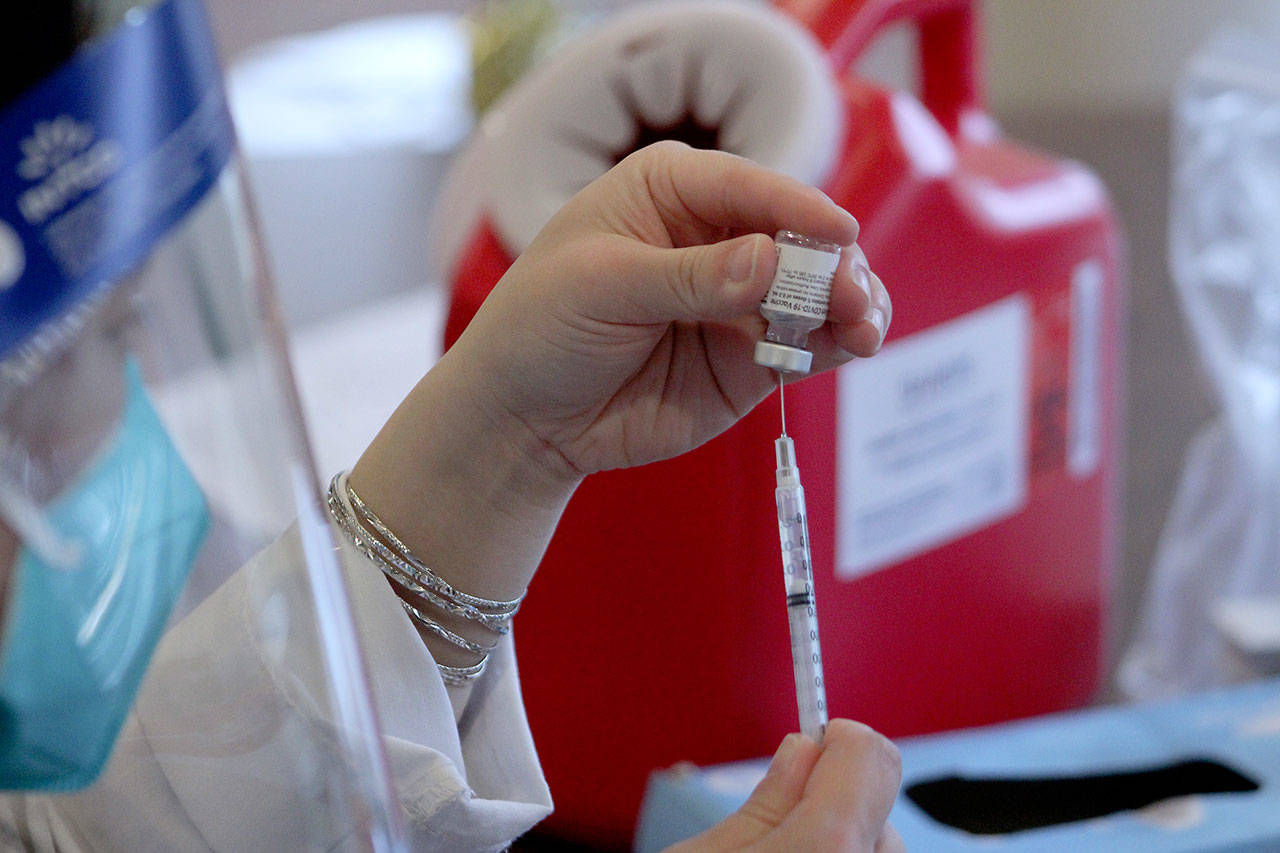It’s been 10 weeks since the COVID-19 vaccine landed in Washington.
In that time, 1.4 million shots have been administered statewide. But for so many, the last month has meant spending hour after hour online, or on hold, trying to get an appointment.
“That makes it very frustrating for the individual,” state Secretary of Health Dr. Umair Shah said. “It makes it very confusing. It can make people angry, and it appears like, ‘Oh gosh, there isn’t a plan.’ It’s not that there isn’t a plan, there isn’t a supply.”
The struggle in securing the vaccine is especially difficult for some of the county’s oldest residents, who are among the most vulnerable to COVID-19.
They’re competing with younger people, who often have an easier time scouring multiple provider websites to find an open appointment. And some worry they’ll be left behind.
A month after entering Phase 1B1, the Department of Health is working on ways to improve the appointment scheduling process, while also trying to increase equity in who gets the limited supply.
Statewide, the Department of Health, Microsoft and others are partnering to build a website that has access to appointments from every vaccine provider, though it’s unclear when that could debut.
But even with new improved scheduling, it will still be difficult to get your shot, as long as supply remains an issue, Shah said.
The state’s three-week vaccine forecast shows nearly 300,000 doses coming to Washington the week of March 7.
Earlier this month, the state was only getting about half of that.
Meanwhile, a one-shot vaccine from Johnson & Johnson could receive emergency federal approval by the end of the month.
In preparation of more doses, the state has increased vaccination capacity — with providers capable to inject more than 45,000 shots a day.
While governments and providers are under pressure to speed up the process, they must also find ways to address the inequities preventing the most vulnerable from securing the potentially lifesaving shot.
“That’s what makes it really hard,” Shah said. “We want to do everything we can to remove barriers.”
Statewide, Black and Hispanic Washingtonians have been getting vaccinated at lesser rates than other racial and ethnic groups, despite being disproportionately impacted by the pandemic, data from the state Department of Health shows.
That’s partially because of racial and ethnic disparities in the health care industry, Shah said, given that health care workers were among the first to get vaccinated, and make up a large portion of people who have already received both doses.
Still, there’s more work to be done, he said.
Additionally, all demographic data is self-reported. About 1 in 10 vaccine recipients decline to provide that information.
To address the inequities, Gov. Jay Inslee and other officials have announced a $30 million plan to bring the COVID-19 vaccine to under-served and minority populations.
The effort, run by the All In WA Group, will enlist trusted, community-based organizations that can perform outreach and administer mobile and pop-up vaccine clinics.



